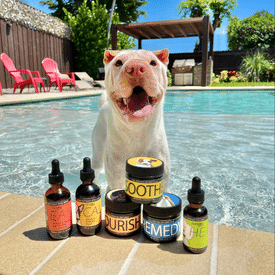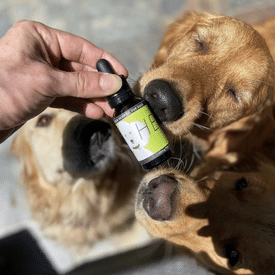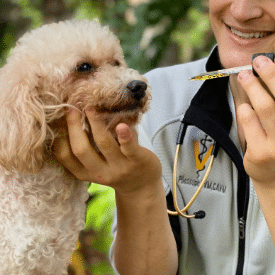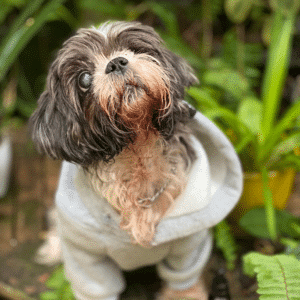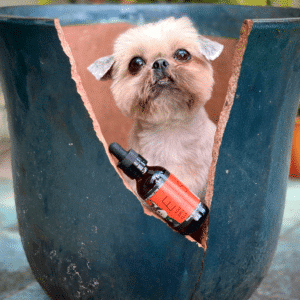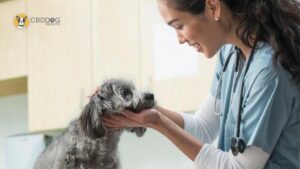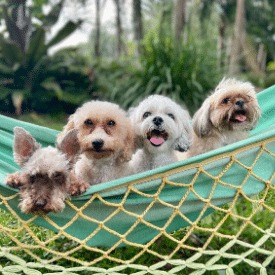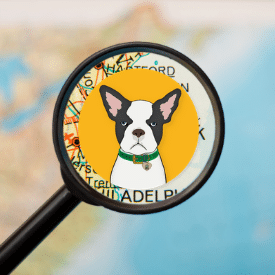Colic in Horses: Causes, Symptoms and Treatment

Colic is a common condition of the gastrointestinal tract in horses and is most commonly described as abdominal pain. Sometimes, it’s obvious there is something wrong to the point a veterinarian must be called. Other times, only mild symptoms appear making it questionable. It’s critical every horse owner have some type of plan in place with his or her veterinarian to determine when an emergency visit is and is not necessary. This is particularly important for those new to the equine field.
Table of Contents
Causes of Colic
There are numerous causes of colic, but they are generally related to the microflora found in a horse’s GI tract. A horse’s natural diet consists of grass, leaves, and bark. Domesticated horses are often fed processed grains and sweet feed that are high in carbs. This can lead to hindgut acidosis and lower pH levels in the colon. These factors lead to higher levels of acidity, affecting the delicate microbial balance in a horse’s body.
Other common causes of colic include:
- Stress
- Dental issues
- Tainted feed
- Moldy feed
- High grain diets
- Low forage diets
- Changes in diet
- Ingestion of sand
- Lack of water consumption
- Parasite infestation
Deworming is critical to include in a horse’s health routine as parasites, including strongyles, are a common cause. Antibiotics may also cause colic due to disruption of the microflora in the gut. Dental problems cause colic by not allowing the horse to properly chew their feed. Senior horses who are fed hay on a regular basis are at increased risk for impaction colic.
Signs of Colic
The signs of colic in horses vary on a case-by-case basis. The most common signs of colic include:
- Rolling
- Bloating
- Sweating
- Pawing
- Stress
- Anxiety
- Lack of appetite
- Not drinking enough
- Unusual posture
According to Dr. Diane Wagner, DVM, with Elemental Equine Services, the horse will often paw, lie down and look at his or her abdomen, roll, may become aggressive during feed time, and you may notice dilated pupils when under stress or in pain. Dr. Wagner continued to note, additional signs include a bloated abdomen, increased respiratory rate, dehydration or impaction, parasites, and/or fever.
Types of Colic
There are several types of colic in horses. The type is dependent upon the cause.
Stomach distention: When large amounts of grain are ingested in a single meal, the stomach may become distended, resulting in potential rupture.
Displacement colic: The small intestine is free-floating in the horse’s gut resulting in increased mobility. The mobility may result in the small intestine becoming twisted, leading to restricted blood flow. This type of colic requires immediate surgery to reposition the intestine properly. Displacement colic is often caused by excessive gas buildup in the gut.
Impaction Colic: During impaction, the large intestine begins to fold upon itself, resulting in changes in diameter and curvature. Masses of feed and/or foreign material may begin to build up and block the intestine. Impaction risk can be reduced by providing sufficient amounts of water.
Gas colic: Every type of colic involves some type of gas buildup in the intestines and/or the stomach. As the gas builds, a horse’s gut distends, resulting in abdominal pain. Excessive gas may be produced by bacteria in the gut after a horse consumes moldy feed.
[optin-monster-shortcode id=”hzv0d8qvoygyh25ouz1s”]
Treating Colic in Horses
In order to provide proper treatment, the underlying cause of colic must be determined. Many types of colic can be effectively managed with medication, whereas others may require extensive surgery. While waiting for your veterinarian, you should take the following steps:
- Take note of any changes to feces.
- Remove access to food.
- Allow the horse to rest.
- Do not administer any type of medication prior to the veterinarian’s arrival.
When your veterinarian arrives, she or he will likely listen to the horse’s gut sounds, monitor his or her vitals, perform a rectal exam, and/or insert a nasogastric tube to release gastric reflux. Dr. Diane Wagner also stated the severity of the colic can be determined by heart rate and rectal palpation to diagnose impaction or twist in addition to the nasogastric tube.
Alternative Option: Full spectrum hemp extract CBD
One of the main goals to prevent colic is to maintain healthy gut flora. The gut microbiome in our horses, cats, dogs, and other animals is a critical aspect of our animals’ well-being. The microbiome in our animals is essentially a collection of fungi, good bacteria, and other organisms that share a mutualistic relationship (both the organisms and us benefit). Not only is healthy gut flora critical for our horse’s digestive system, but also for every other system within the body.
There are a significant number of endocannabinoid receptors in the gut resulting in the ability for Full Spectrum Hemp Extract (FSHE) to balance gut bacteria, AKA the microbiome. The responsibility of the endocannabinoid system is to bring the body to homeostasis– basically, to balance out anything that may be wrong to bring the body back to normal health. Full Spectrum Hemp Extract can prove extremely beneficial to our horses in the prevention and maintenance of colic and other conditions.
Full Spectrum Hemp Extract can also help reduce any stress and/or anxiety our horse is feeling. This is particularly important when our horses are already displaying symptoms of stress and anxiety, as they could lead to more severe conditions.
Full Spectrum Hemp Extract may also help reduce the abdominal pain many horses experience with colic. Cannabis has been utilized as a pain reliever for thousands of years, but unfortunately, many don’t know of its beneficial effects. The central nervous system is responsible for an animal’s pain response (ours, our horses, our cats, our dogs, etc). One of the ways FSHE reduces pain is by actually changing the way the central nervous system communicates to tell the brain pain relief is necessary. Homeostasis (or balance in the body) due to FSHE CBD, as mentioned earlier in the article, assists in providing pain relief to your horse naturally.
Preventing Colic in Horses
To prevent colic in horses, the following steps may be taken:
- Feed your horse on a regular schedule. Establish a routine.
- Do not make any sudden changes to a horse’s diet.
- Maintain a fresh, clean water supply for adequate hydration.
- Check teeth on a regular basis.
- Provide sufficient exercise.
- Ask your veterinarian about parasite control measures.
- Do not place feed on the ground, as your horse could potentially consume foreign material resulting in obstruction.
- Add full-spectrum hemp extract CBD to your horse’s regimen
Final Thoughts
Learning about your horse, his or her individual behavior patterns, and understanding the best feeding practices are all measures you can take to reduce the risk of colic. Developing an emergency plan in case of potential colic with your veterinarian is equally as important. Your veterinarian will inform you of the signs and symptoms to watch for to attempt to diagnose the colic early and prevent unnecessary damage and pain.

